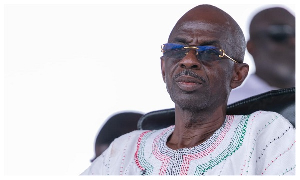I have observed with grave concerns the practice of publishing classified government documents by some media outlets and small-circulation tabloids. This worrisome attitude where media organizations pre-empt the decisions of state authorities to publish committee reports online or elsewhere, without recourse to due diligence, is utterly inappropriate and smacks of unprofessional conduct. In an effort to get off the hooks of legal tussle, a bold disclaimer or a caption of “draft report” accompanies such undertakings.
This practice leaves the public unable to ascertain whether or not such so-called draft reports are authentic. It is time the media outlets understood the journalistic implications of releasing classified or de-classified government documents or reports to the public domain. There is little or no valour in rushing to publish a government document which has not yet been sanctioned for public consumption.
Another issue of concern is the undue pressure put, sometimes, on the presidency to publish committee reports. This, to say the least, is unacceptable. It is important to allow the president adequate time and space to carefully study any report in order to take judicious actions thereon. I fully support the legitimate demands for accountability and transparency but certainly not through unorthodox means. I am of the view that demands for accountability must be genuine and within the confines of the law and good governance practice.
I wish to encourage government and particularly the President to take his time to study whatever documents or reports before making any decisions. This is because when he does so in haste and under pressure; it is the very public which puts undue pressure on him today to publish a report, which will turn round to chastise him for any actions taken in haste or blunder. Additionally, it is important for the presidency, ministries and all government agencies and institutions to take modern scientific measures to protect classified documents.
I also encourage the National Media Commission to take immediate steps to educate media outlets on this worrisome scenario of publishing classified government documents.
I further encourage the Legislature together with National Media Commission and media institutions to evolve clear legal guidelines on the whistle blowers bill so as to determine what will, for instance, constitute unlawful communication and theft of government documents. It is essential to learn from recent ongoing global contention on whistle blowing. This will help deepen our democratic cardinals of responsible free press and freedom of expression.
I, however, wish to commend other media houses that have exercised high levels of professionalism by refraining from such publication of classified government documents.
Charles-Chess IV
AN ARDENT POLICY OBSERVER
E-MAIL: charleschess@hotmail.com
Opinions of Friday, 20 September 2013
Columnist: Charles-Chess IV
Publication of classified government documents by media outlets
Entertainment













